DAOstack: The Operating system of collective intelligence
The world as it is now is a result of collaborations between people or organizations made years ago and also the future of the world will be the result of collaborations and decisions people will make now and in the future.
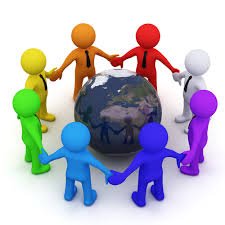
Since the beginning of time, the progress of humanity in all areas of life have been through collective collaboration. This may be in form of tribes, markets and/or corporations. The collaboration has yield many positives as it allows us to get things of common interest done in a way most of the group members actively participate in the decision making and thus getting the job done. The product may be in form of policies or creation of more organizations.
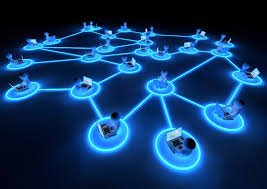
Example of the products of such collaborations is the global marketplace, the Internet and the blockchain.
The Problem
However, in every group of people or group of corporations, there may exist conflict of interests and priorities as the size of the organization increases and these often impede the growth of such organizations. The conflicts of interests also makes decisions almost impossible to be made and such often leads to bad reward system for organizations.
Also, another problem is that the organization may fail to be able fully deploy the functionality it is capable of producing in terms of value.
Existing Solution
The advent of revolutionary organizations like the internet and crowdsourcing improved the system of cooperation and peer production through information exchange. But it “lacks the economic means for general-purpose coordination and global peer production”.
Then Blockchain stepped up by providing “reliable, open and programmable accounting system”, which eliminates the need of involving mutually accepted trusted third parties in financial transactions, thus eliminating the issues of trust and providing way for Decentralized Autonomous Organization (DAO).
A DAO is digital form of organization whose rules and regulations are implemented with software codes. Every member (which may be human, other organizations etc.) of the organization has token(s) with which they can influence the decisions of the organizations by voting. The amount of influence is proportional to the amount of tokens possessed by such member. And, just like the traditional form of organization, a member of a DAO can propose decisions and have it voted upon.
A New Problem Arising
As more and more DAOs are created on the blockchain, competition will surely arise for those which offers somewhat related activities and as such the inputs of those with weaker reputation and lesser tokens in execution of a smart contract may not be appraised due to the influence of the other ones with higher reputation and more tokens even though the input of the former has more economical value than the latter. This creates a void for operational basis and successful governance system for DAOs.
The DAOstack Solution
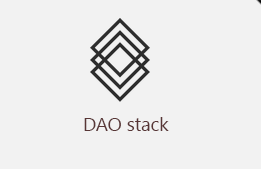
DAOs seemingly holds the future of business collaborations with the benefits of simplified transactions, cost reduction when contracts are executed and the secure platform on which it runs (that is, the blockchain). But its current lack of adequate governance systems and limitations of value-based functionality makes it an abstract thing to implement.
With DAOstack, a system which remove such flaws has been implemented and the functionality value of DAOs implemented on the network greatly improved.
DAOStack is a platform through which the rules that govern DAOs are rewritten to eliminate wield of influence on DAO decisions and as such allowing for true democratic participation of all members of such DAO in such decisions.
For example, lets consider a startup DAO that deals with the acquisition of estate properties with potential value appreciation. At the onset, the DAO gets its capital through crowdfunding through the sale of its tokens by which the buyers can influence the company’s decisions according to the amount of tokens possessed by the buyer. In any case, the decision to acquire an estate property which serves the interest of a majority holder of the tokens is greatly influenced with an unfair disadvantage to other members of the DAO even if it does not serve the interest of the DAO as a whole. Now, if such DAO were to be implemented on the DAOstack platform, such influence would not be allowed as the platform would seek decisions would be required from a good number of the DAO members for such contract to be executed.
THE DAOStack
DAOstack is a platform built to provide scalable decentralized governance into the world of DAOs blockchain. It can be likened to a computer’s operating system which coordinates the interactions of hardware and software components of the systems and ensures successful cooperation in their operations.
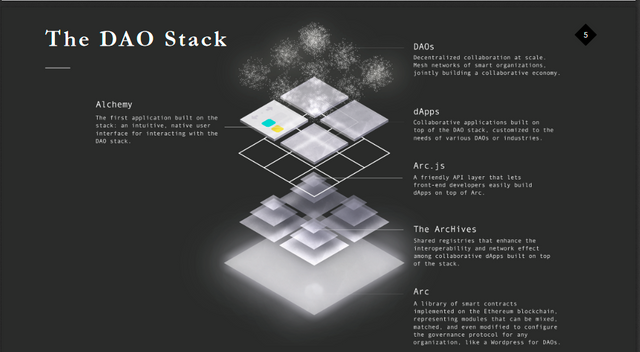
It consists of five layers through which maximum compatibility of distinct but interoperable DAOs in the platform to interact with one another so as to fully enjoy their maximum potential.
The layers are:
• Alchemy
• Arc.js
• Arc
• ArcHives
• Ethereum blockchain.
The Alchemy layer is the interface through which anyone can create a DAO on the DAOstack platform. It is a DApp developed by the platform to provide easy interaction between the users and the platform. It can be likened to the user interface through which computer users creates processes for computers to execute.
The Arc.js is an API (Application programming interface) which enables the Alchemy to perform its function. It provides access to tools needed to easily create DAOs and DApps with Alchemy for easy integration into the DAOstack platform.
The ArcHives is the database of DAOs on the DAOstack platform which enables the interoperability of DAOs of common interests.
The Arc is a library of smart contracts that has been created on the Ethereum blockchain. They represent the modules that can operate together or modified to configure the governance protocol for any organization. It is the root layer on which the DAOstack platform is built and it relies on the Ethereum blockchain.
What DAOstack offers
The Internet and Blockchain has been a revolutionary in creating network and information exchange. Now there is a revolutionary technology in DAOstack which bring the best of collaboration between people through effective and scalable governance models in decentralized corporations.
In the words of Matan Field, an expert in decentralized governance, he said
“The first purpose of designing DAOstack was not to build a specific protocol or a specific application but rather to build the soil on the ground from which a whole ecosystem can thrive.”
DAOstack is not just a platform, it is a network where collaborations potentials are maximized. It allows you to choose the best governance template for your DAO and implement it immediately using the platform. It eliminates any form of corruptibility in the governance systems of DAOs on the network.
As with all DApps, DAOstack is based on circular token economy where tokens are given to those who contribute value to platform. Note that those tokens also gain values as the network gains more reputation in the blockchain.
In two sentences, the positives that DAOstack brings is limitless. It is indeed the future of world collaboration.
For more information, you can visit any of the following links:
- DAO stack website
- A short summary
- DAO stack whitepaper
- DAO stack Telegram
- DAO stack Twitter
- DAO stack Reddit
- DAO stack Newsletter
- DAOstack Github
- DAOstack Medium
- DAOstack YouTube
- DAOstack Token Sale
The Team
These are the brains behind the DAOstack ecosystem.
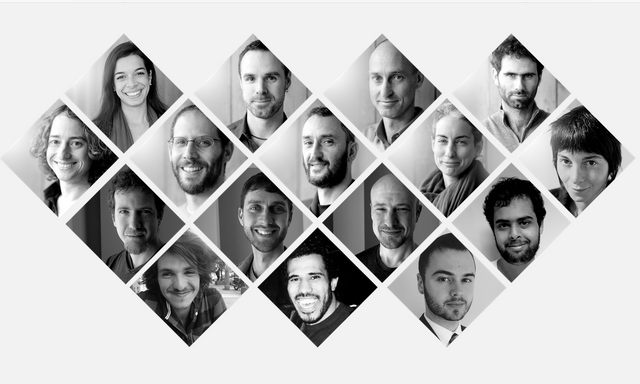
DAOstack2018